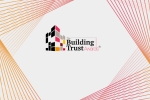
Key findings

“It’s hard to build trust if you’re not authentic. It’s a necessary condition. You can’t say you’re one thing, and act the other.”
Q1: Can you purposefully work on building trust and remain authentic?
As we see it, authenticity isn’t a goal but an outcome. It’s the result of providing - consistently and over time - an authentic “total experience” to your stakeholders: employees, customers, vendors and other key business partners.
And therein lies the rub. If a company invests time and resources to gain and maintain trust, aren’t you implying that they’re insincere?
No. Because trust is about more than sincerity.
More details in the report.
“…the heart of trust is being authentic and transparent and open about what you’re doing.”
Q2: Is transparency really in the best interests of a company?
For Malaysian public-listed companies, there is no running away from a certain degree of regulated transparency. In March of 2016, Bursa Malaysia announced amendments to the Listing Requirements for public-listed companies which include more disclosure on elements, strategy, key risks, and both financial and non-financial measures of performance.
These match the Integrated Reporting <IR> Framework very well, and will provide better insight into a company’s story beyond just its financials. Non-listed companies too are regulated by the Companies Act. But even if these regulations did not exist, in today’s social media-fuelled world, businesses will soon discover that transparency is thrust upon them inevitably.
Glassdoor, a job and recruitment portal, shares employer salaries, CEO ratings and company reviews – all of which are crowd-sourced. Its database of more than 8 million reviews comes from employees themselves. Each year, they publish a list of the highest-rated CEOs in Europe and North America, all voted on by the respective companies’ own employees.
With these sorts of pressures, it would seem hard to run away from a certain amount of transparency. But just like there can be too much of a good thing, can there be too much transparency?
More details in the report.
“There’s transparency, and then there’s legibility. So you have to make sure that in being transparent, you’re also at the same time presenting a clear story that people can understand and follow.”

“I see a day where business leaders can expect the lines between what’s private and what’s public to shift alarmingly. How you manage your ‘personal’ financial affairs - your tax returns, bank statements - will be regarded by many as public property.”

[Everyone in the organisation] must have that passion to live by the core of the company. When they do that consistently, it’s no longer just a message by the CEO but the delivery by all their people [that builds trust].
Q3: Is the CEO the face of trust for a business?
Is it a cliché to say that ‘the tone starts from the top’?
A cliché it may be, but perhaps it is indeed more true of trust-building than anything else. As trust is a concept that is rooted in personal interactions and relationships, it is only natural human tendency to look at and judge the CEO alongside the brand.
When we looked at the responses of the business leaders and the people, it was a pretty loud yes on both sides – they expect that CEOs lead the way for trust-building efforts, at least to some extent.
With these expectations resting on their shoulders, business leaders should be encouraged to hear that the 2016 Edelman Trust Barometer shows that there is an overall increase in business trust globally. More importantly, the Barometer shows that Malaysians trust businesses to keep up with the rapid pace of change we are experiencing. Of course, when we dug into the question further, we found there was more to it than meets the eye.
More details in the report.
“The first perception [of a business] would be the CEO. For me, whenever I see that so-and-so is the CEO of the company, my first reaction is that, that should be a good company as so-and-so is the CEO and he’s a trustworthy, credible person.”
Q4: Is it easier for “big” businesses to build trust as compared to small businesses?
Is it easier for big companies to build trust? It is a seemingly innocent question, but a loaded one.
Malaysians show a profound regard for big, global brand names.
Another study also revealed that millennials look to the corporate world to solve global problems, with 82% believing businesses can make the greatest impact in addressing societal issues.
Yet there are pockets of society today, aided by easy access to news and data via social media, who are becoming increasingly distrusting of any big corporation. They are more vocal about practices often associated with big corporations such as sweatshop issues, genetically modified foods, and environmentally harmful practices.
So which is it really? Do big businesses have the edge over the small? This was the question that hands-down most confounded our poll respondents. Throughout the course of our pulse survey, we saw the votes constantly swinging between the two; almost a 50-50.
More details in the report.
“Regardless of your size, you shouldn’t fall back on the name of your organisation when it comes to building trust”

“As your company gets bigger, not only do you have more people in the organisation, you find that you have more stakeholders. Managing multiple stakeholders is massively complex!”
Q5: Can there be a one-size-fits-all model for building trust?
When we talk to companies about how to measure trust, we are repeatedly asked this question: Is there a best model for building trust?
It is a natural question, of course, but it goes back to the concept that trust is situational.
No cookie-cutter approach to trust
Essentially, trust can flux and reshape according to the type of industry you’re in, the cultural/social makeup of your stakeholders, or the meaning of your business. Sometimes, a company’s trust levels vary over time especially if you operate in an environment where volatility is pronounced.
However, research conducted by the World Economic Forum (WEF) revealed that more often than not companies prioritise being compliant (to fulfill the minimum requirements to building trust) instead of being values-led (doing the right thing because it’s right, period). This can lead to a ‘box-ticking’ culture.
On the surface, a “one-size-fits-all model” may seem like the right approach for companies which may have to delegate trust-building. For instance, those going through a succession planning phase or in the case of businesses decentralising their operations to a new market.
However, limiting themselves to one model may be harmful in the long run simply because trust does not exist in a vacuum.
“Although trust for certain industries is different, the base values remain the same.”

You can’t quite replicate trust in different environments even though you may have a tried and tested formula to building trust.
Even the way the business community and the public perceives trust can differ greatly. WEF’s research highlights that the public perceives trust in emotional terms of fairness, honesty, ethics and behaviour, while business tends to view trust in terms of delivery of products and services. While both are correct, they are out of sync and indicates a misalignment between how businesses and the public understand trust.
More details in the report.
“Consistency and time are the foundations to building trust; how much trust is needed probably varies by industry”
Contact us

Building Trust Programme Sponsor & Assurance Partner, PwC Malaysia
Tel: +60 (3) 2173 0946

















